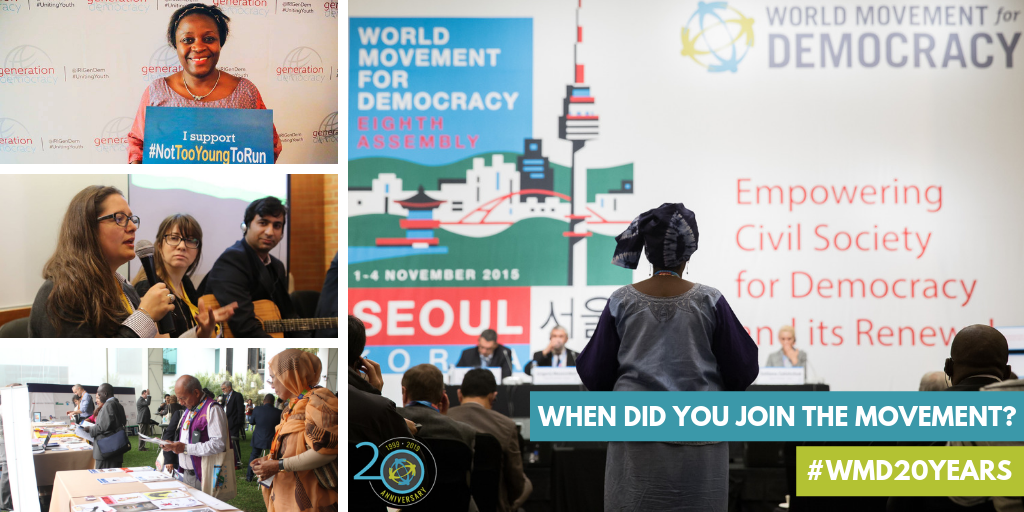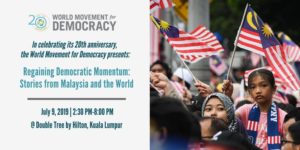
Since 2006, the world has been in a democratic recession, with more countries declining in freedom than gaining for each of the last thirteen years, The Henry Jackson Society observes. For most of this period, the recession was shallow and even disputed, generating only modest overall global declines in political rights and civil liberties, and leaving the basic contours of democratic predominance in the world unchanged. But looking beneath the aggregate numbers, the pace of democratic breakdown has been accelerating in big and strategically important states, from Russia and Venezuela early in this new century, to Turkey, Bangladesh and Thailand more recently.
 Some 20 political and civic society leaders from around the world marked the World Movement for Democracy’s 20th anniversary in Kuala Lumpur under the rubric of Regaining Democratic Momentum. Malaysia was an appropriate venue because of its efforts since May 2018 in fighting corruption and ensuring inclusion. Sessions included How Can Civil Society Defend Democratic Space in Authoritarian Countries? and How Can Civil Society Ensure Successful Transitions to Democracy? For 20 years, the World Movement has “created space and opportunities for democracy advocates to build connections, strengthening solidarity and planting the seed of inspiration to next generation democracy actors,” said the Asia Democracy Network.
Some 20 political and civic society leaders from around the world marked the World Movement for Democracy’s 20th anniversary in Kuala Lumpur under the rubric of Regaining Democratic Momentum. Malaysia was an appropriate venue because of its efforts since May 2018 in fighting corruption and ensuring inclusion. Sessions included How Can Civil Society Defend Democratic Space in Authoritarian Countries? and How Can Civil Society Ensure Successful Transitions to Democracy? For 20 years, the World Movement has “created space and opportunities for democracy advocates to build connections, strengthening solidarity and planting the seed of inspiration to next generation democracy actors,” said the Asia Democracy Network.







